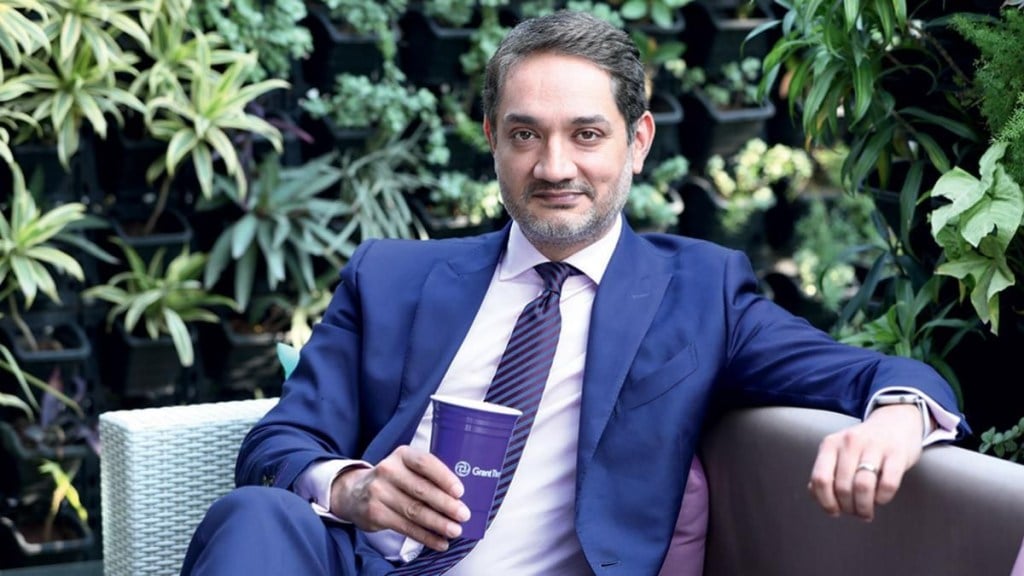An inter-ministerial group led by the Prime Minister’s Office (PMO) is reviewing India’s audit regulations with a view to relaxing them. In the two rounds of meetings held since August, the group has discussed possible changes in the advertising rules for CAs, lawyers, and amendments in the Companies Act to enable Indian audit and advisory firms to grow to the levels of the Big Four. Grant Thornton Bharat’s CEO Vishesh Chandiok talked about the progress of this initiative, and the regulatory changes required in an interview with Manu Kaushik, Edited excerpts:
What are the things that India must do to achieve the target of creating home-grown peers of the Big Four?
Vishesh Chandiok: For the first time, there is real momentum in this regard. It is not about enabling new small and medium enterprises (SMEs), but about creating 10-20 large (Indian) multi-disciplinary partnership (MDP) firms in addition to the ones that are there today. If we don’t have the ecosystem to support local firms, then only the MNC firms will keep getting bigger. MDP is about having regulated business and unregulated business under one umbrella.
The regulated business are restricted to be practised by only specific professionals – company secretaries, accountants, lawyers, etc. The unregulated businesses include consulting, M&A, etc. The idea is how do you create enterprises which are multidisciplinary.
In the regulated services, there are various rules that govern how entities should be structured. In practical terms, all these regulations have tied the hands of the firms. For a while, let’s remove all these restrictions. Over time, as MDP practices evolve, we can look at bringing back some of those restrictions.
Do you think it’s feasible to remove all restrictions for professional services?
Chandiok: There are some restrictions that already apply. Limited liability partnerships (LLPs), for instance, are regulated by the ministry of company affairs. Why should LLPs need to go to a professional body to seek approvals for matters like a name. For a while, remove all these. The powers will anyway be there for the respective institute (ICAI, ICSI, ICMAI) to act against an individual member fairly and proportionately (in case of violations). But at least the current bureaucracy needs to be eased.
What exactly are the restrictions that should be eased?
Chandiok: While there have been changes made to the Companies Act and Chartered Accountants Act to enable MDPs, these are not operational yet. The MDPs can only have partners who are members of a particular institute. It should be fully free. Also, they should be given the freedom to advertise the brand.
Then, the current regulations limit the avenues of sourcing capital. A typical partnership firm in India is primarily funded by capital contributed by the partners and cash flows generated from operations. MDPs should be allowed to have pure financial investors who can be partners.
In other countries, private equity (PE) has backed the creation of large (professional services) platforms where one-partner, two-partner firms have managed to sell their practices to a PE-backed consolidator, and form a 200-partner firm which is much more competitive than the sole practitioner. They can get better technology. I think PE capital could be a huge enabler in India.
The good thing is that the MCA understands the need to ease the restrictions.
The preference to give work to the Big Four have grown over the years where we have seen the government and private sector contracts are designed in such a way that excludes smaller firms.
How can the government tackle this issue?
Chandiok: To begin with, smaller firms can be provided with some preferential work. In China, the government gave preference to their homegrown firms to support them for a while. Today, some homegrown firms there are rivalling the Big Four.
Mandatory joint audit for a certain section of companies can also be enabled for a while. Additionally, certain government contracts which are not strategic can be given to some of those firms on a preferential basis in order to help them develop the credentials and the skills. We have also recommended the removal of barriers such as investor specified choice of auditor limited to Big Four as well as blanket revenue-based bidding criteria that limit eligibility for government contracts.
Do you think Indian firms need to collaborate with global MDP firms to grow?
Chandiok: Every business needs alliances in order to progress. A business has alliances with banks, accounting firms, consulting firms, and lawyers. The alliances within professional services were effectively for only one reason. For instance, initially, when McDonald’s went from the US to 30 other markets, the firm that served it locally could not serve it in other markets. So it needed to ally with others. The same way as our companies are going across the world, our firms also need those alliances. Otherwise, those companies will remove our firms and go to somebody else who can serve them in those markets.
Over 100 Indian firms have global affiliations, but the problem is they can’t display their affiliation, nor they are allowed to write that affiliation. They cannot even use their affiliation in their brand.
Since Grant Thornton is involved in the discussions with the government, what’s your understanding of the pace of the decision-making?
Chandiok: There’s a real momentum within the government this time around. From NITI Aayog to MCA and department of economic affairs, everybody is involved in pushing it. India liberalised in 1991 but professional services firms has remained in the same place since 1950. The institute (ICAI) has done extremely well on education, training, and drafting norms, etc. That’s where the focus of the institute should be. They should not be bothered about the affiliations of domestic firms, or the fee sharing arrangements that these firms have.

